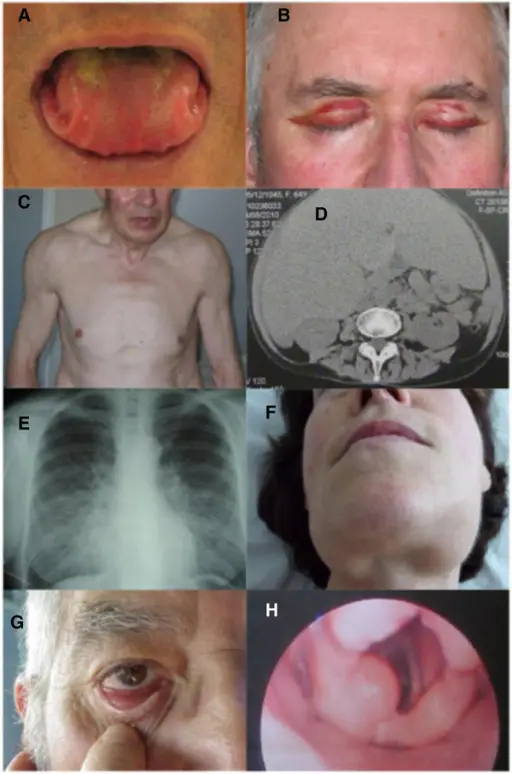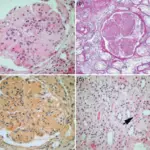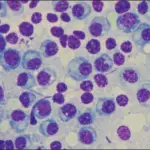Primary or immunocyte-associated amyloidosis is a type of amyloidosis that is immunocyte-derived and associated with elevated immunoglobulin free light chains in serum produced by monoclonal plasma cells.
What is the Pathology of Primary or Immunocyte-Associated Amyloidosis?
The pathology of primary or immunocyte-associated amyloidosis is:
-Etiology: The cause of primary or immunocyte-associated amyloidosis is caused by acquired overexpression of clonal immunoglobulin light chains.
-Genes involved: CCND1 (cyclin D1) gene.
-Pathogenesis: The sequence of events that lead to primary or immunocyte-associated amyloidosis come from plasma cells that produce extra pieces of antibodies called “light chains” These light chains circulate in the bloodstream, and can deposit in organs throughout the body, causing organ damage.
-Histology: The histology associated with primary or immunocyte-associated amyloidosis shows amyloid deposition in tissues and organs affected.
How does Primary or Immunocyte-Associated Amyloidosis Present?
Patients with primary or immunocyte-associated amyloidosis typically are thought to be equal in males and females. However, about 60% of patients referred to amyloid centers are males. They present at age range of 50-65 years. The symptoms, features, and clinical findings associated with primary or immunocyte-associated amyloidosis include changes in skin color, severe fatigue, feeling of fullness, anemia, joint pain, shortness of breath, tingling and numbness in hands and feet, severe weakness, sudden weight loss.
How is Primary or Immunocyte-Associated Amyloidosis Diagnosed?
Primary or immunocyte-associated amyloidosis is diagnosed by biopsy of affected tissue; the amyloidogenic protein is typed using a variety of immunohistologic and biochemical techniques.
How is Primary or Immunocyte-Associated Amyloidosis Treated?
Primary or immunocyte-associated amyloidosis is treated by standard-dose combination chemotherapy with steroids and alkylating agents. Myeloablative chemotherapy with melphalan and autologous stem cell rescue appears to offer survival benefit. Newer agents such as bortezomib and lenalidomide have shown promising activity and are being evaluated as part of combination regimens in clinical trials.
What is the Prognosis of Primary or Immunocyte-Associated Amyloidosis?
The prognosis of primary or immunocyte-associated amyloidosis is generally poor especially when the heart and kidneys are affected.



